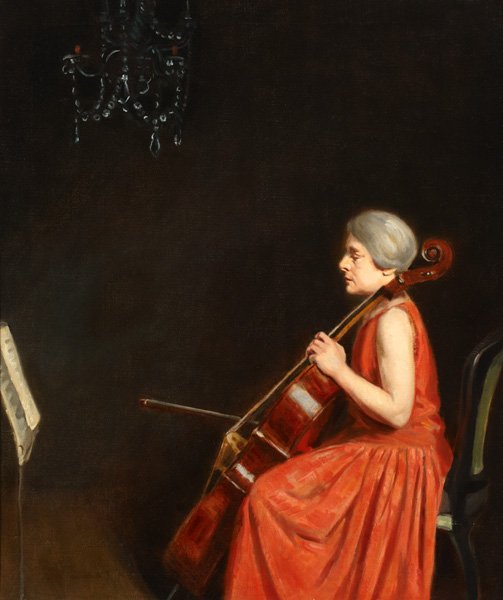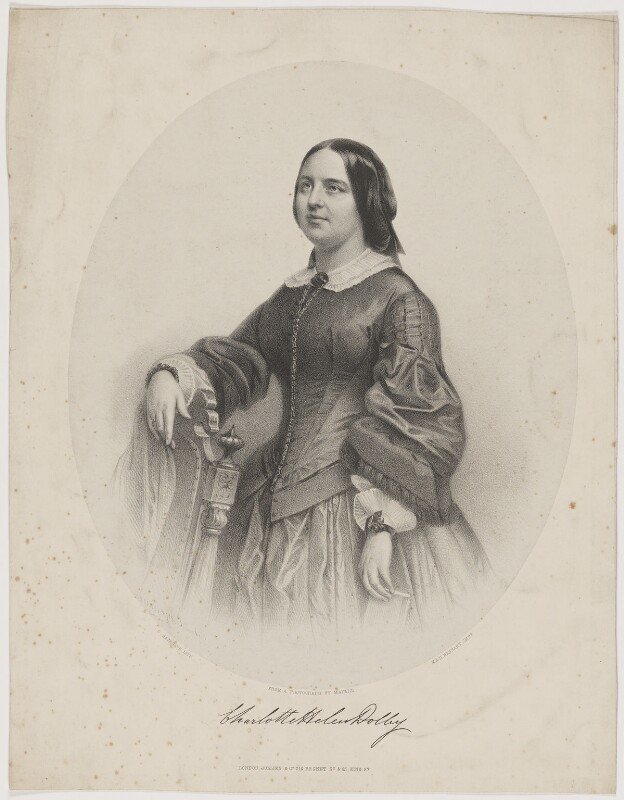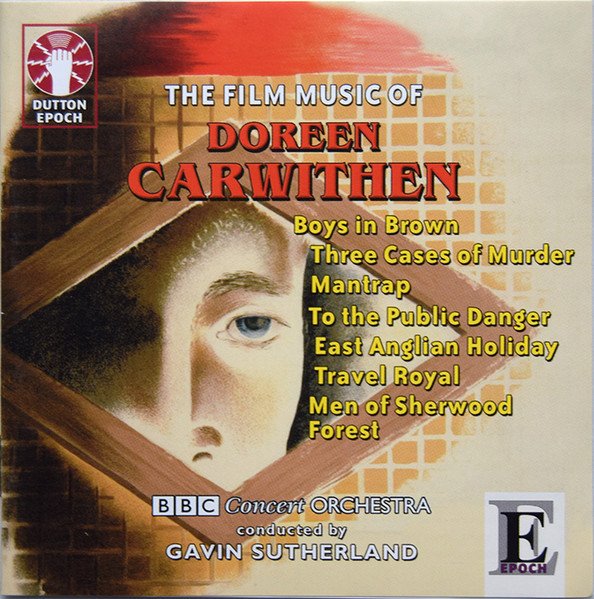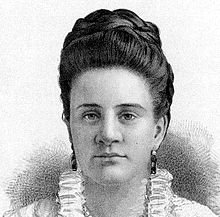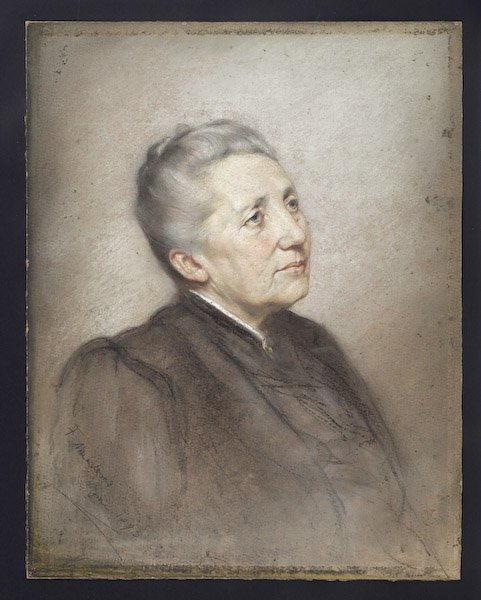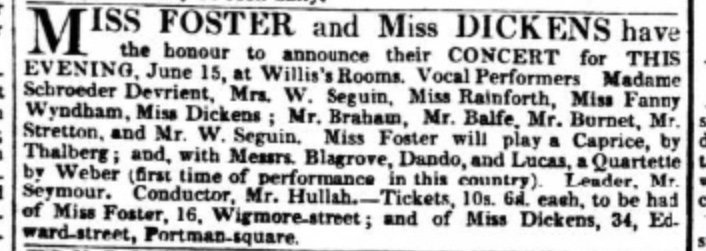Wild Strawberries: Jean Blewett
“The glad, glad days, and the pleasant ways—
Ho! for the fields and the wildwood!
The scents, the sights, and the dear delights—
Ho! for our care-free childhood!
Heavy the air with a fragrance rare,
Strawberries ripe in the meadow,
Luscious and red where the vines are spread
Thickly in sun and shadow.
The glad, glad days, and the pleasant ways,
Chorus of wild birds calling:
”Strawberry ripe! Ho! strawberry ripe!”
From dawn till the dew is falling.”
Pansies: Kate Seymour MacLean
“When the earliest south winds softly blow
Over the brown earth, and the waning snow
In the last days of the discrowned March,—
Before the silver tassels of the larch,
Or any tiniest bud or blade is seen;
Or in the woods the faintest kindling green,
And all the earth is veiled in azure mist,
Waiting the far-off kisses of the sun,—
They lift their bright heads shyly one by one.
And offer each, in cups of amethyst,
Drops of the honey wine of fairy land,—
A brimming beaker poised in either hand
Fit for the revels of King Oberon,
With all his royal gold and purple on:
Children of pensive thought and airy fancies,
Sweeter than any poet’s sweetest stanzas,
Though to the sound of eloquent music told,
Or by the lips of beauty breathed or sung:
They thrill us with their backward-looking glances,
They bring us to the land that ne’er grows old,—
They mind us of the days when life was young
Nor time had stolen the fire from youth’s romances,
Dear English pansies!
While still the hyacinth sleeps on securely,
And every lily leaf is folded purely,
Nor any purple crocus hath arisen;
Nor any tulip raised its slender stem,
And burst the earth-walls of its winter prison,
And donned its gold and jewelled diadem;
Nor by the brookside in the mossy hollow,
That calls to every truant foot to follow,
The cowslip yet hath hung its golden ball,—
In the wild and treacherous March weather,
The pansy and the sunshine come together,
The sweetest flower of all!
The sweetest flower that blows;
Sweeter than any rose,
Or that shy blossom opening in the night,
Its waxen vase of aromatic light—
A sleepy incense to the winking stars;
Nor yet in summer heats,
That crisp the city streets,—
Where the spiked mullein grows beside the bars
In country places, and the ox-eyed daisy
Blooms in the meadow grass, and brooks are lazy,
And scarcely murmur in the twinkling heat;
When sound of babbling water is so sweet,
Blue asters, and the purple orchis tall,
Bend o’er the wimpling wave together;—
The pansy blooms through all the summer weather,
The sweetest flower of all!
The sweetest flower that blows!
When all the rest are scattered and departed,
The symbol of the brave and faithful-hearted,
Her bright corolla glows.
When leaves hang pendant on their withered stalks,
Through all the half-deserted garden walks;
And through long autumn nights,
The merry dancers scale the northern heights,
And tiny crystal points of frost-white fire
Make brightly scintillant each blade and spire,
Still under shade of shelt’ring wall,
Or under winter’s shroud of snows,
Undimmed, the faithful pansy blows,
The sweetest flower of all!”
Winter at Delphi: Willa Cather
“Cold are the stars of the night,
Wild is the tempest crying,
Fast through the velvet dark
Little white flakes are flying.
Still is the House of Song.
But the fire on the hearth is burning;
And the lamps are trimmed, and the cup
Is full for his day of returning.
His watchers are fallen asleep,
They wait but his call to follow,
Ay, to the ends of the earth—
But Apollo, the god, Apollo?
Sick is the heart in my breast,
Mine eyes are blinded with weeping;
The god who never comes back,
The watch that forever is keeping.
Service of gods is hard;
Deep lies the snow on my pillow.
For him the laurel and song,
Weeping for me and the willow:
Empty my arms and cold
As the nest forgot of the swallow;
Birds will come back with the spring,—
But Apollo, the god, Apollo?
Hope will come back with the spring,
Joy with the lark’s returning;
Love must awake betimes,
When crocus buds are a-burning.
Hawthorns will follow the snow,
The robin his tryst be keeping;
Winds will blow in the May,
Waking the pulses a-sleeping.
Snowdrops will whiten the hills,
Violets hide in the hollow:
Pan will be drunken and rage—
But Apollo, the god, Apollo?”
The Angel of the Jasmine Wreath: Ethel Murphy
(From a picture by Botticelli, of the Madonna and Child with Angels,—in the Borghese Gallery)
“Ineffable angel, with the jasmine wreathed,
Wherefrom the sweetness over brow and lips,
And luminous white eyelids tremulously slips,
A visible essence from thy beauty breathed,—
The pure and pensive marvel of thy face is sheathed
In tresses softer than the bloom of night,
Wherefrom the dampness on thy forehead drips
With dews from out God’s meadows infinite,—
Thy face, itself, a lily filled with light:—
Thyself the youngest of God’s angels and most fair,
Bearing His latest breath and blessing on thine hair,
Thou comest fresh from looking on thy Lord;
And all is well, and all is filled for thee
With eloquent, mute wonder of His Word.
Oh, lean a little forth thy lips to me,
For I am fain of peace amid this earthly strife,
And I would drink, a spent soul, thirstily,
From out thy never-failing cup of life.”
By the Seaside: Mrs Enoch Taylor
“As I sit by the seaside,
And watch the blue waves
On the boundless bright bosom of ocean,
The roar of the billows,
The sea as it raves,
Awaken ecstatic emotion.
I long for the leisure
To stay by its side,
To linger in love by its beauties,
To listen entranced,
To gaze with delight,
And regret that I have other duties.
I regret that dull life,
With its prosy routine,
Must claim my attention to-morrow;
That I must awake
From my bright ocean dream,
And leave the cool seaside in sorrow.
This world of delight,
This home by the sea,
This hour so full of enjoyment,
How I wish that the future
Had nothing for me
But just such happy employment.
I’d live by the sea,
All these long summer days
I’d watch the bright breakers at even,
I’d wander at twilight,
And silently gaze
On the beauties of ocean and heaven.
Till Luna lends light
To the billowy scene,
That sparkles like gems in its glory;
As tipping the waves
With her silvery sheen.
She nightly renews her bright story.
I’d gaze at the stars
In the heavens on high,
And list to the music of ocean,
Till the moan of the sea
And the zephyr’s soft sigh
Would turn my delight to devotion.
I could muse on those orbs,
Thus mirrored by waves,
In revery live by the hour
By the side of the sea,
As it sighs or it raves,
And dream of Omnipotent power.”
The Blackbird and the Rooks: Dinah Craik
“A slender young Blackbird built in a thorn-tree
A spruce little fellow as ever could be;
His bill was so yellow, his feathers so black,
So long was his tail, and so glossy his back,
That good Mrs. B., who sat hatching her eggs,
And only just left them to stretch her poor legs,
And pick for a minute the worm she preferred,
Thought there never was seen such a beautiful bird.
And such a kind husband! how early and late
He would sit at the top of the old garden gate,
And sing, just as merry as if it were June,
Being ne’er out of patience, or temper, or tune.
”So unlike those Rooks, dear; from morning till night
They seem to do nothing but quarrel and fight,
And wrangle and jangle, and plunder—while we
Sit, honest and safe, in our pretty thorn-tree.”
Just while she was speaking, a lively young Rook
Alit with a flap that the thorn-bush quite shook,
And seizing a stick from the nest—“Come, I say,
That will just suit me, neighbor”—flew with it away
The lady loud twittered—her husband soon heard:
Though peaceful, he was not a cowardly bird;
And with arguments angry enough to o’erwhelm
A whole Rookery—flew to the top of the elm.
”How dare you, you—“ (thief he was going to say;
But a civiller sentiment came in the way:
For he knew ‘tis no good, and it anyhow shames
A gentleman, calling strange gentlemen names:)
”Pray what is your motive, Sir Rook, for such tricks,
As building your mansion with other folks’ sticks?
I request you’ll restore them, in justice and law.”
At which the whole colony set up a—caw!
But Blackbird, not silenced, then spoke out again;
”I’ve built my small nest with much labor and pain.
I’m a poor singing gentleman, Sirs, it is true,
Though cockneys do often mistake me for you;
But I keep Mrs. Blackbird, and four little eggs,
And neither e’er pilfers, or borrows, or begs.
Now have I not right on my side, do you see?”
But they flew at and pecked him all down the elm-tree.
Ah! wickedness prospers sometimes, I much fear;
And virtue’s not always victorious, that’s clear:
At least, not at first: for it must be confessed
Poor Blackbird lost many a stick from his nest;
And his unkind grand neighbors with scoffing caw-caws,
In his voice and his character found many flaws,
And jeered him and mocked him; but when they’d all done,
He flew to his tree and sang cheerily on.
At length May arrived with her garlands of leaves;
The swallows were building beneath the farm-eaves,
Wrens, linnets, and sparrows, on every hedge-side,
Were bringing their families out with great pride;
While far above all, on the tallest tree-top,
With a flutter and clamor that never did stop,
The haughty old Rooks held their heads up so high,
And dreamed not of trouble—until it drew nigh!
One morning at seven, as he came with delight
To his wife’s pretty parlor of may-blossoms white,
Having fed all his family ere rise of sun,—
Mr. Blackbird perceived—a big man with a gun;
Who also perceived him: “See, Charlie, among
That may, sits the Blackbird we’ve heard for so long:
Most likely his nest’s there—how frightened he looks!
Nay, Blackie, we’re not come for you, but the Rooks.”
I don’t say ‘twas cruel—I can’t say ‘twas kind—
On the subject I haven’t quite made up my mind:
But those guns went pop-popping all morning, alas!
And young Rooks kept dropping among the long grass,
Till good Mr. Blackbird, who watched the whole thing,
For pity could scarcely a single note sing,
And in the May sunset he hardly could bear
To hear the returning Rooks’ caw of despair.
”O, dear Mrs. Blackbird,” at last warbled he,
”How happy we are in our humble thorn-tree;
How gaily we live, living honest and poor,
How sweet are the may-blossoms over our door.”
”And then our dear children,” the mother replied,
And she nested them close to her warm feathered side,
And with a soft twitter of drowsy content,
In the quiet May moonlight to sleep they all went.”
Tone Picture: Jean Starr Untermeyer
“Across the hot square, where the barbaric sun
Pours coarse laughter on the crowds,
Trumpets throw their loud nooses
From corner to corner.
Elephants, whose indifferent backs
Heave with red lambrequins,
Tigers with golden muzzles,
Negresses, greased and turbaned in green and yellow,
Weave and interweave in the merciless glare of noon.
The sun flicks here and there like a throned tyrant,
Snapping his whip.
From amber platters, the smells ascend
Of overripe peaches mingled with dust and heated oils.
Pages in purple run madly about,
Rolling their eyes and grinning with huge, frightened mouths.
And from a high window—a square of black velvet—
A haughty figure stands back in the shadow,
Aloof and silent.”
Atlas: U A Fanthorpe
“There is a kind of love called maintenance
Which stores the WD40 and knows when to use it;
Which checks the insurance, and doesn’t forget
The milkman; which remembers to plant bulbs;
Which answers letters; which knows the way
The money goes; which deals with dentists
And Road Fund Tax and meeting trains,
And postcards to the lonely; which upholds
The permanently rickety elaborate
Structures of living, which is Atlas.
And maintenance is the sensible side of love,
Which knows what time and weather are doing
To my brickwork; insulates my faulty wiring;
Laughs at my dryrotten jokes; remembers
My need for gloss and grouting; which keeps
My suspect edifice upright in air,
As Atlas did the sky.”
One Evening Near Nice: Radclyffe Hall
“Pale depth of sky, serene and wonderful,
Within whose fold the lamps of early stars
Shine far away and faintly luminous ;
Whose pensive tones merge from the afterglow
Into this colour indescribable ;
This blending of the sea and earth and clouds.
Soft and yet poignant, passionate yet calm.
I know not what the spirit in me feels,
When it beholds thee through my human eyes
Nor what strange craving for forgotten things
Has stirred my soul to this disquietude!”
Tree-Toad: Hilda Conkling (6yo)
“Tree-toad is a small gray person
With a silver voice.
Tree-toad is a leaf-gray shadow
That sings.
Tree-toad is never seen
Unless a star squeezes through the leaves,
Or a moth looks sharply at a gray branch.
How would it be, I wonder,
To sing patiently all night,
Never thinking that people are asleep?
Raindrops and mist, starriness over the trees,
The moon, the dew, the other little singers,
Cricket ... toad ... leaf rustling....
They would listen:
It would be music like weather
That gets into all the corners
Of out-of-doors.
Every night I see little shadows
I never saw before.
Every night I hear little voices
I never heard before.
When night comes trailing her starry cloak,
I start out for slumberland,
With tree-toads calling along the roadside.
Good-night, I say to one, Good-by, I say to another,
I hope to find you on the way
We have traveled before!
I hope to hear you singing on the Road of Dreams!”
Moon-Folly: Fannie Stearns Gifford
“I will go up the mountain after the Moon:
She is caught in a dead fir-tree.
Like a great pale apple of silver and pearl,
Like a great pale apple is she.
I will leap and will catch her with quick cold hands
And carry her home in my sack.
I will set her down safe on the oaken bench
That stands at the chimney-back.
And then I will sit by the fire all night,
And sit by the fire all day.
I will gnaw at the Moon to my heart’s delight
Till I gnaw her slowly away.
And while I grow mad with the Moon’s cold taste
The World will beat at my door,
Crying “Come out!” and crying “Make haste,
And give us the Moon once more!”
But I shall not answer them ever at all.
I shall laugh, as I count and hide
The great black beautiful Seeds of the Moon
In a flower-pot deep and wide.
Then I shall lie down and go fast asleep,
Drunken with flame and aswoon.
But the seeds will sprout and the seeds will leap,
The subtle swift seeds of the Moon.
And some day, all of the World that cries
And beats at my door shall see
A thousand moon-leaves spring from my thatch
On a wonderful white Moon-tree!
Then each shall have Moons to his heart’s desire:
Apples of silver and pearl;
Apples of orange and copper fire
Setting his five wits aswirl!
And then they will thank me, who mock me now,
“Wanting the Moon is he,”—
Oh, I’m off to the mountain after the Moon,
Ere she falls from the dead fir-tree!”
Death of the Old Sea King: Frances Ellen Watkins Harper
“Twas a fearful night — the tempest raved
With loud and wrathful pride,
The storm-king harnessed his lightning steeds,
And rode on the raging tide.
The sea-king lay on his bed of death,
Pale mourners around him bent;
They knew the wild and fitful life
Of their chief was almost spent.
His ear was growing dull in death
When the angry storm he heard,
The sluggish blood in the old man’s veins
With sudden vigor stirred.
”I hear them call,” cried the dying man,
His eyes grew full of light;
”Now bring me here my warrior robes,
My sword and armor bright.
”In the tempest’s lull I heard a voice,
I knew ‘twas Odin’s call.
The Valkyrs are gathering round my bed
To lead me unto his hall.
”Bear me unto my noblest ship,
Light up a funeral pyre;
I’ll walk to the palace of the braves
Through a path of flame and fire.”
Oh! wild and bright was the stormy light
That flashed from the old man’s eye,
As they bore him from the couch of death
To his battle-ship to die,
And lit with many a mournful torch
The sea-king’s dying bed,
And like a banner fair and bright
The flames around him spread.
But they heard no cry of anguish
Break through that fiery wall,
With rigid brow and silent lips
He was seeking Odin’s hall.
Through a path of fearful splendor,
While strong men held their breath,
The brave old man went boldly forth
And calmly talked with death.”
Lullaby: Louisa May Alcott
“Now the day is done,
Now the shepherd sun
Drives his white flocks from the sky;
Now the flowers rest
On their mother’s breast,
Hushed by her low lullaby.
Now the glowworms glance,
Now the fireflies dance,
Under fern-boughs green and high;
And the western breeze
To the forest trees
Chants a tuneful lullaby.
Now ‘mid shadows deep
Falls blessed sleep,
Like dew from the summer sky;
And the whole earth dreams,
In the moon’s soft beams,
While night breathes a lullaby.
Now, birdlings, rest,
In your wind-rocked nest,
Unscared by the owl’s shrill cry;
For with folded wings
Little Brier swings,
And singeth your lullaby.”
A Prayer: Sara Teasdale
“ Until I lose my soul and lie
Blind to the beauty of the earth,
Deaf though shouting wind goes by,
Dumb in a storm of mirth;
Until my heart is quenched at length
And I have left the land of men,
Oh, let me love with all my strength
Careless if I am loved again.”
Sea Poppies: Hilda Doolittle
“Amber husk
fluted with gold,
fruit on the sand
marked with a rich grain,
treasure
spilled near the shrub-pines
to bleach on the boulders:
your stalk has caught root
among wet pebbles
and drift flung by the sea
and grated shells
and split conch-shells.
Beautiful, wide-spread,
fire upon leaf,
what meadow yields
so fragrant a leaf
as your bright leaf?”
The Map: Elizabeth Bishop
“Land lies in water; it is shadowed green.
Shadows, or are they shallows, at its edges
showing the line of long sea-weeded ledges
where weeds hang to the simple blue from green.
Or does the land lean down to lift the sea from under,
drawing it unperturbed around itself?
Along the fine tan sandy shelf
is the land tugging at the sea from under?
The shadow of Newfoundland lies flat and still.
Labrador’s yellow, where the moony Eskimo
has oiled it. We can stroke these lovely bays,
under a glass as if they were expected to blossom,
or as if to provide a clean cage for invisible fish.
The names of seashore towns run out to sea,
the names of cities cross the neighboring mountains
-the printer here experiencing the same excitement
as when emotion too far exceeds its cause.
These peninsulas take the water between thumb and finger
like women feeling for the smoothness of yard-goods.
Mapped waters are more quiet than the land is,
lending the land their waves’ own conformation:
and Norway’s hare runs south in agitation,
profiles investigate the sea, where land is.
Are they assigned, or can the countries pick their colors?
-What suits the character or the native waters best.
Topography displays no favorites; North’s as near as West.
More delicate than the historians’ are the map-makers’ colors.”
Power: Audre Lorde
“The difference between poetry and rhetoric
is being ready to kill
yourself
instead of your children.
I am trapped on a desert of raw gunshot wounds
and a dead child dragging his shattered black
face off the edge of my sleep
blood from his punctured cheeks and shoulders
is the only liquid for miles
and my stomach
churns at the imagined taste while
my mouth splits into dry lips
without loyalty or reason
thirsting for the wetness of his blood
as it sinks into the whiteness
of the desert where I am lost
without imagery or magic
trying to make power out of hatred and destruction
trying to heal my dying son with kisses
only the sun will bleach his bones quicker.
A policeman who shot down a ten year old in Queens
stood over the boy with his cop shoes in childish blood
and a voice said “Die you little motherfucker” and
there are tapes to prove it. At his trial
this policeman said in his own defense
“I didn’t notice the size nor nothing else
only the color”. And
there are tapes to prove that, too.
Today that 37 year old white man
with 13 years of police forcing
was set free
by eleven white men who said they were satisfied
justice had been done
and one Black Woman who said
“They convinced me” meaning
they had dragged her 4’10’’ black Woman’s frame
over the hot coals
of four centuries of white male approval
until she let go
the first real power she ever had
and lined her own womb with cement
to make a graveyard for our children.
I have not been able to touch the destruction
within me.
But unless I learn to use
the difference between poetry and rhetoric
my power too will run corrupt as poisonous mold
or lie limp and useless as an unconnected wire
and one day I will take my teenaged plug
and connect it to the nearest socket
raping an 85 year old white woman
who is somebody’s mother
and as I beat her senseless and set a torch to her bed
a greek chorus will be singing in 3/4 time
“Poor thing. She never hurt a soul. What beasts they are.””
A London Thoroughfare, 2 A.M.: Amy Lowell
“They have watered the street,
It shines in the glare of lamps,
Cold, white lamps,
And lies
Like a slow-moving river,
Barred with silver and black.
Cabs go down it,
One,
And then another.
Between them I hear the shuffling of feet.
Tramps doze on the window-ledges,
Night-walkers pass along the sidewalks.
The city is squalid and sinister,
With the silver-barred street in the midst,
Slow-moving,
A river leading nowhere.
Opposite my window,
The moon cuts,
Clear and round,
Through the plum-coloured night.
She cannot light the city;
It is too bright.
It has white lamps,
And glitters coldly.
I stand in the window and watch the moon.
She is thin and lustreless,
But I love her.
I know the moon,
And this is an alien city.”
Phenomenal Woman: Maya Angelou
“Pretty women wonder where my secret lies.
I’m not cute or built to suit a fashion model’s size
But when I start to tell them,
They think I’m telling lies.
I say,
It’s in the reach of my arms,
The span of my hips,
The stride of my step,
The curl of my lips.
I’m a woman
Phenomenally.
Phenomenal woman,
That’s me.
I walk into a room
Just as cool as you please,
And to a man,
The fellows stand or
Fall down on their knees.
Then they swarm around me,
A hive of honey bees.
I say,
It’s the fire in my eyes,
And the flash of my teeth,
The swing in my waist,
And the joy in my feet.
I’m a woman
Phenomenally.
Phenomenal woman,
That’s me.
Men themselves have wondered
What they see in me.
They try so much
But they can’t touch
My inner mystery.
When I try to show them,
They say they still can’t see.
I say,
It’s in the arch of my back,
The sun of my smile,
The ride of my breasts,
The grace of my style.
I’m a woman
Phenomenally.
Phenomenal woman,
That’s me.
Now you understand
Just why my head’s not bowed.
I don’t shout or jump about
Or have to talk real loud.
When you see me passing,
It ought to make you proud.
I say,
It’s in the click of my heels,
The bend of my hair,
the palm of my hand,
The need for my care.
’Cause I’m a woman
Phenomenally.
Phenomenal woman,
That’s me.”
Departure: Edna St Vincent Millay
“It’s little I care what path I take,
And where it leads it’s little I care,
But out of this house, lest my heart break,
I must go, and off somewhere!
It’s little I know what’s in my heart,
What’s in my mind it’s little I know,
But there’s that in me must up and start,
And it’s little I care where my feet go!
I wish I could walk for a day and a night,
And find me at dawn in a desolate place,
With never the rut of a road in sight,
Or the roof of a house, or the eyes of a face.
I wish I could walk till my blood should spout,
And drop me, never to stir again,
On a shore that is wide, for the tide is out,
And the weedy rocks are bare to the rain.
But dump or dock, where the path I take
Brings up, it’s little enough I care,
And it’s little I’d mind the fuss they’ll make,
Huddled dead in a ditch somewhere.
”Is something the matter, dear,” she said,
”That you sit at your work so silently?”
”No, mother, no—‘twas a knot in my thread.
There goes the kettle—I’ll make the tea.” ”
